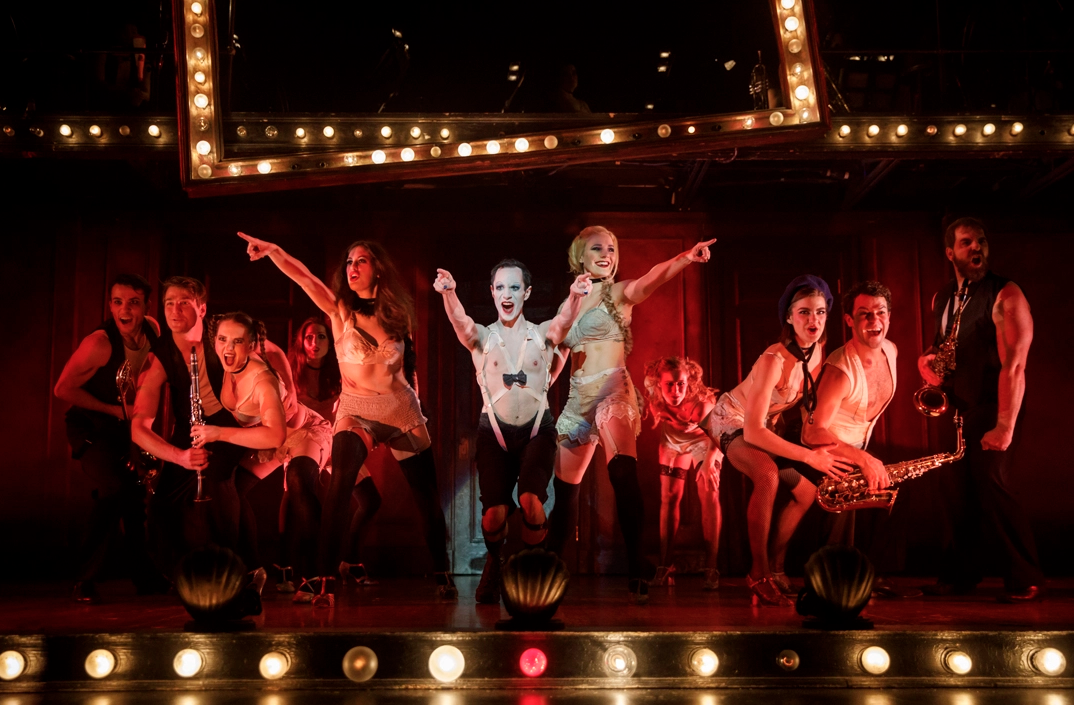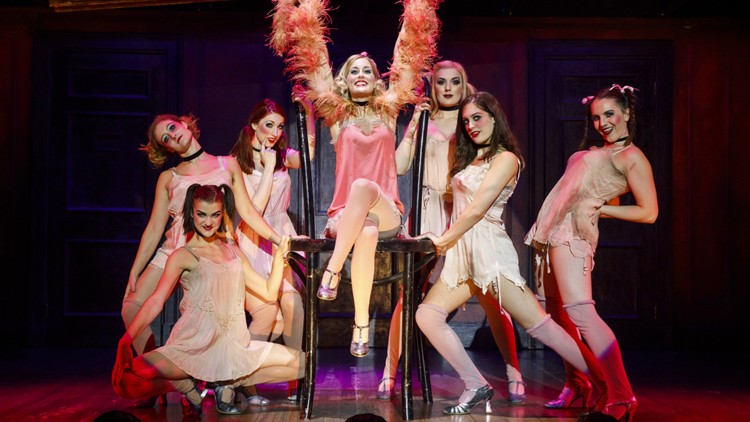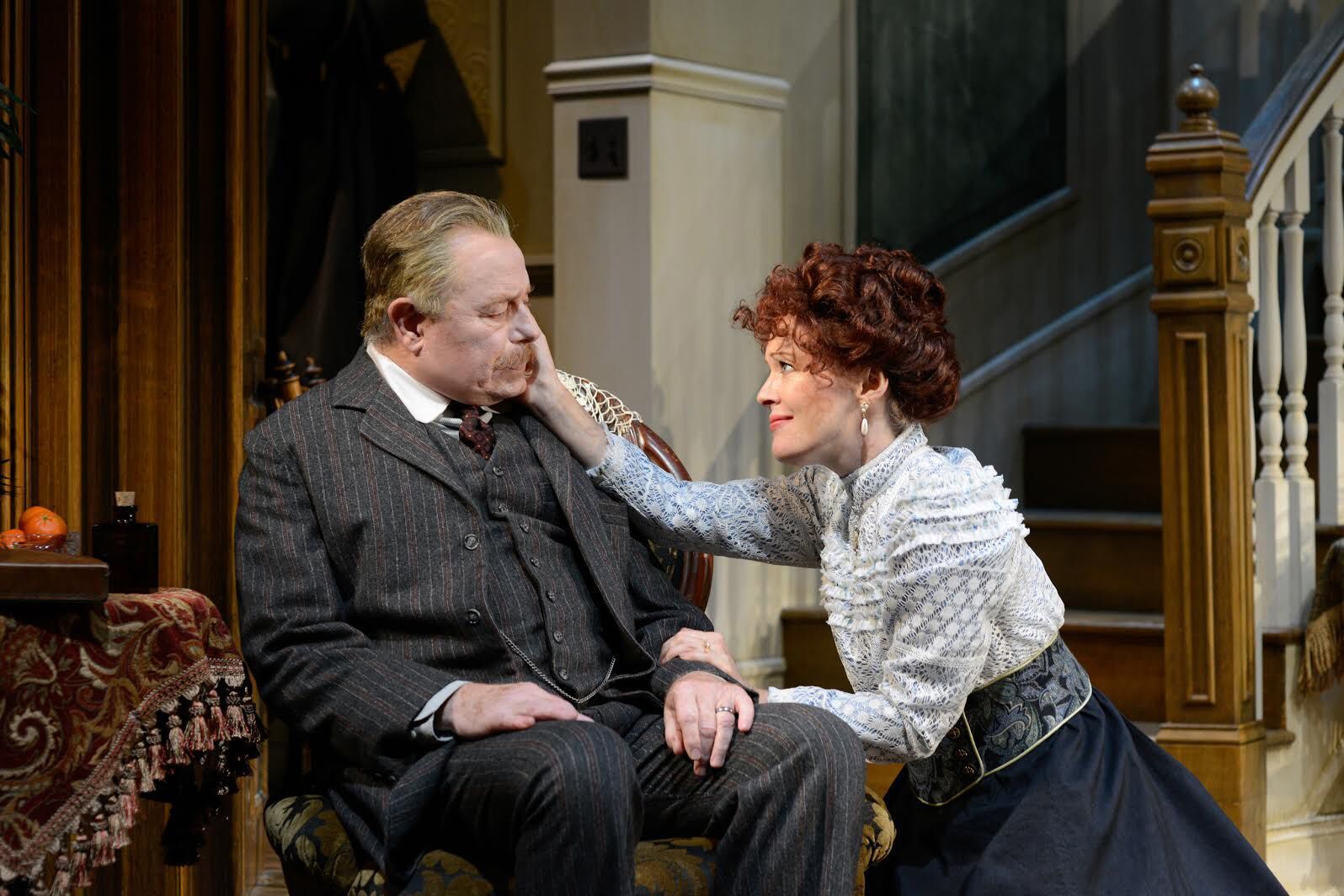
The Cabaret performance at the Kravis Center was an exercises in multiple meta-cliches and theatrical adulteration. Cabaret has a long and circuitous lineage, dating back to the early twentieth century. The production staged at the Kravis Center recently is part of a national tour and utilizes many of the tropes from the original 1966 Broadway production which won eight Tony Awards.
The 1972 Bob Fosse film won eight Academy Awards, including Best Actress for Liza Minnelli and etched itself into the popular American consciousness as it solidified Ms. Minelli’s theatrical and film legacy as one of the great American performers of the state and screen.

Photo by Joan Marcus
This production is by the Roundabout Theatre Company based in New York City. It is based on the re-imagining of the performance that took place in London in 1993. This “re-imaging”, a suspect term if there ever was one, resulted in a series of cliche-ridden set pieces that bordered on kitsch and farce, unintentionally. Between the mixed, confused range of emotions provoked in the narrative, the queasy song and dance numbers, and the stereotypical scantily-clad lasses competing for sexual comic relief with the male cross-dresses, the audience would have been well-served with a scorecard to keep track of all the cultural taboos and transgressions the performers were trying to allude to or trample on.
It’s not that Cabaret was a wholly unpleasant spectacle. Sally Bowles, played by Bailey McCall Thomas, gave a sterling and inspired performance that climaxed with a lovely solo performance pushing the limits of one’s vocal range.
The show, set in Weimar Germany in 1931, demands a graceful tact between balancing the horrors of what would be World War II and the beguiling seductions of eroticism laced in melancholy.
Cabaret is a crowd-pleaser to be sure and this Roundabout Theater production, headed by Sam Mendes, director of Skyfall and American Beauty, gave the audience a guilty and alluring series of eye-popping pleasures.


